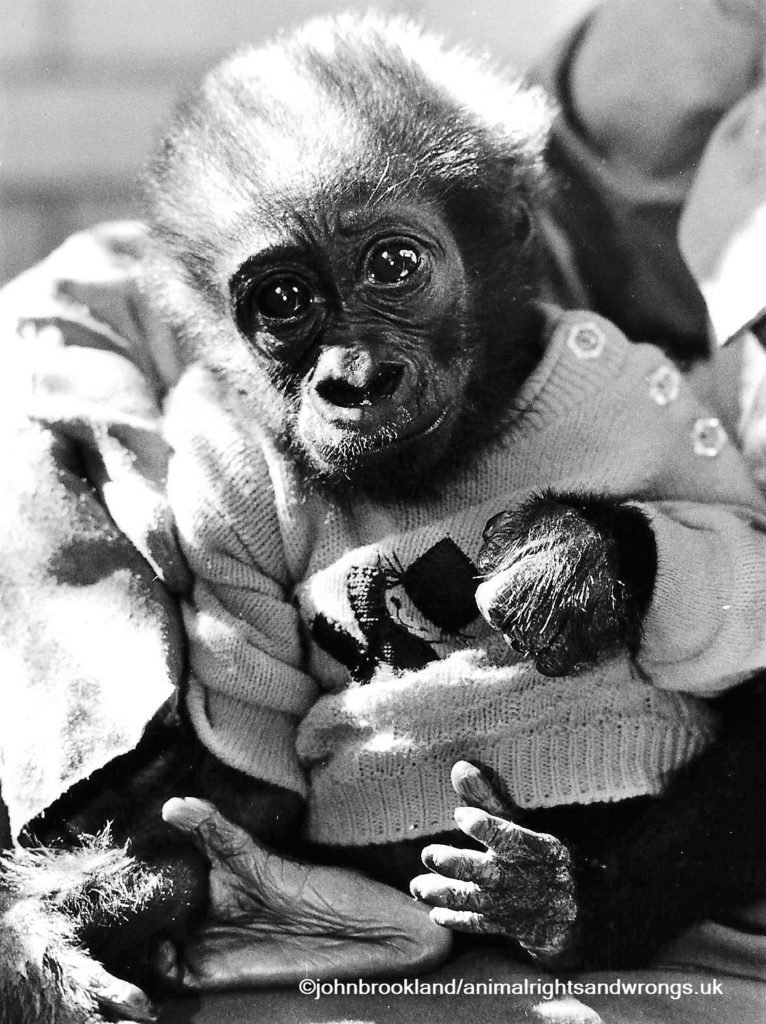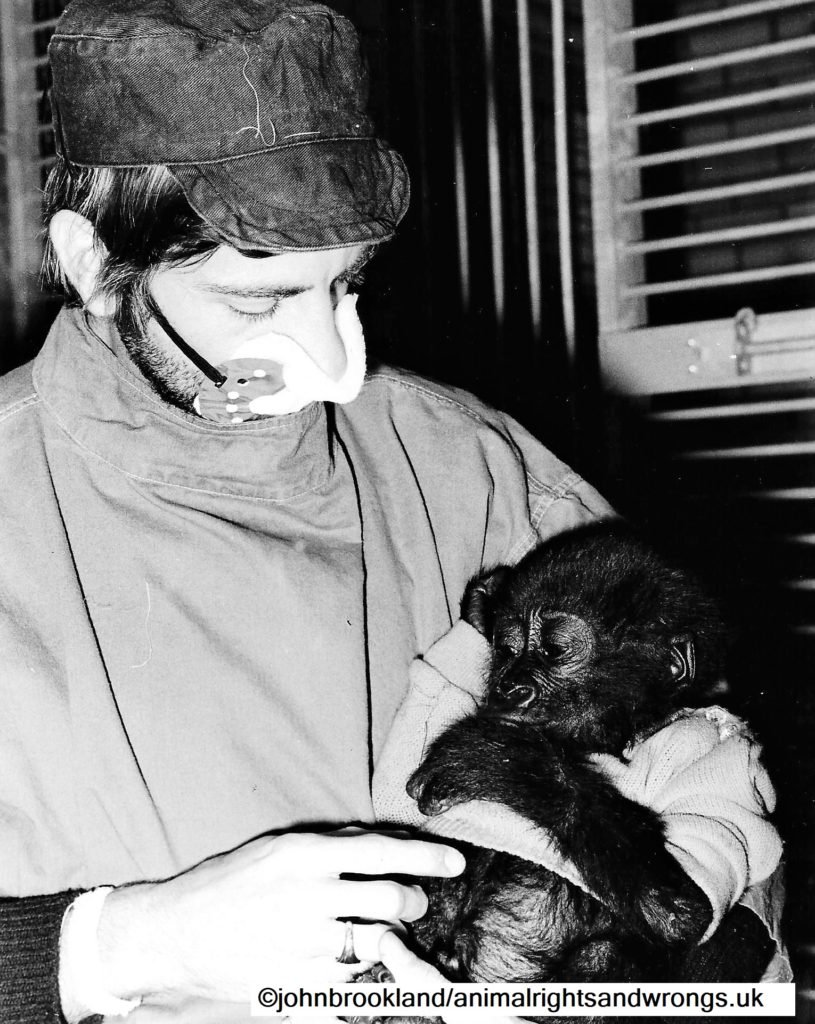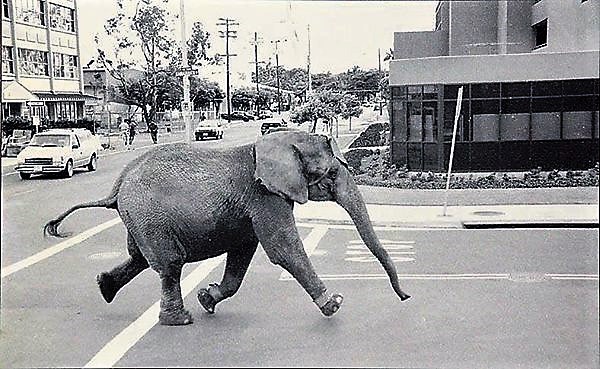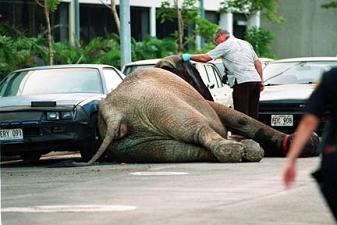The smuggling of apes and other endangered wildlife has happened for decades and authorities can never seem to control the illicit trade despite international laws.

Recently there was publicity in the media about the smuggling of baby chimpanzees and it took me back forty years to my days at Heathrow Airport where I was confronted with the same situations. It is so frustrating and depressing to realise that authorities are so incapable of solving such issues after decades of abuse by the illicit pet trade of chimpanzees, gorillas and orangutans.
On the 31st August 1979 while performing my duties as an animal health inspector at London Heathrow Airport and patrolling the cargo sheds I was approached by cargo staff and informed of a crate containing a “monkey” that they were concerned about.
This monkey was an endangered baby lowland gorilla dressed in a woollen jumper that had been accepted by the airline and transported unaccompanied without any thought to its welfare. She was only 10- 12 weeks old and like a human baby obviously needed regular feeds of mother’s milk and companionship. I cannot explain how angry I was at that point.
Her presence caused an international incident
Luckily I had powers under animal welfare and transport laws to seize her which I immediately did and directed that she went to what was then called the Heathrow Animal Quarantine Station (AQS) for further investigation and examination by a vet. When the crate was opened she immediately jumped out screaming into the arms of the nearest person.
Her name was apparently Toto and she had been shipped from Cameroon, West Africa via an unscrupulous animal dealer in Vienna and was in transit to Japan, another arduous and long journey. I informed our contacts in Customs who also agreed to seize her under the Convention on International Trade in Endangered Species (CITES) regulations which supposedly forbids the trade in endangered species and which the UK had ratified in 1976. I also informed every major international conservation organisation I knew of and contacted the national press who covered the story in detail.
I sometimes wish I had gone on the run with her.
I was confident that with all this exposure Toto would be permanently seized one way or the other and stay in the UK for proper care, but I was very wrong and it was all to no avail. Her presence caused a diplomatic incident and while we strived to get her back into good health at the AQS, where a string of eager foster mum attendants kept her company day and night, all the authorities wrangled over her fate.
It was eventually decided by the UK Government that they didn’t have the powers to detain her and following arguments from ourselves that she was too young to travel so far to Japan unaccompanied, officials and the airline agreed to return her to Vienna and the animal dealer despite everyone’s protests. I was able to delay her departure a little longer by insisting that a specialised crate was required and constructed by the airline for any further movement. At this point I just felt as though I should scoop her up and go on the run with her. Sometimes I wish I had.

We only had her in our care for a week, but it was an emotional wrench for everyone involved when she departed and so unjust. I hate to think what the rest of her life was like. Toto went back to the dealer in Vienna who just sent her to Japan via another route avoiding Heathrow, where on arrival she was so weak a veterinarian was called.
This unfortunately was not the last time I came across smuggled or illegal shipment of animals through the airport. There were several incidents of baby chimps as well as other monkeys and endangered reptiles and birds. Back then no one in officialdom seemed to care or believe they had the powers to do anything. The situation sadly seems to be little changed.
This was my first experience of international wildlife regulations which has always tarnished my belief in their effectiveness. When it comes to practical realities they are far from ideal. Although I am sure such incidents at Heathrow are now rare, it is obvious that illicit traders can still find countries to aid and abet them and money always overcomes any complications in regard to paperwork or turning a blind eye. And huge sums are involved. In 1979 she was worth £7,000, but the price tag now is nearer £300,000.


